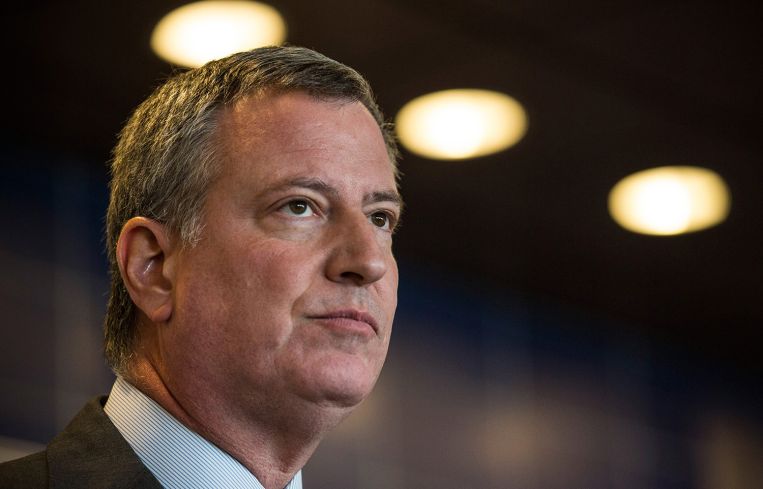Mayor Unveils New Property Tax Reform Commission
By Rebecca Baird-Remba May 31, 2018 9:42 pm
reprints
Just as New York City faces a lawsuit over whether its property tax system is discriminatory, Mayor Bill de Blasio and City Council Speaker Corey Johnson today announced a long-awaited commission that will offer recommendations to reform the city’s property taxes.
The seven-person panel will endeavor to make the city’s property taxes “simpler, clearer and fairer,” according to a press release from the mayor’s office. Advocates frequently charge that the current property tax system unfairly shifts the tax burden to landlords of rental buildings in the outer boroughs while offering comparatively lower tax rates for owners of one- and two-family homes, condominiums and co-op units, particularly in wealthier neighborhoods. As a result, a coalition of activist groups and real estate developers known as Tax Equity Now sued the city a year ago, claiming that the city’s property tax system is inequitable and racially discriminatory, according to Crain’s New York Business.
The commission will examine the tax classification system, the methods of determining property market values and assessments, the treatment of property value increases, tax relief for low-income and senior homeowners, and the method of calculating tax rates. The group will solicit input from New Yorkers by holding at least 10 public hearings, which have yet to be scheduled.
“To be the fairest big city, you need a fair tax system,” de Blasio said in the release. “For too long, New York City taxpayers have had to grapple with a property tax system that is too opaque, too complex, and just feels unfair. New Yorkers need property tax reform, and this advisory commission will put us on the road to achieve it.”
Vicki Been, a faculty director at the NYU Furman Center for Real Estate and a former commissioner of the city’s Department of Housing Preservation and Development, and Marc Shaw, the interim COO of the City University of New York and a former executive at Extell Development Company, will co-chair the commission. The last time a city commission conducted an in-depth review of the property tax system was in 1993, and Shaw also served on that commission while he was the finance director of the City Council.
Other members will include former city Finance Commissioner Carol O’Cleireacain; Grenadier Realty Corp. CEO Felice Michetti; Elizabeth Velez, the president of construction company Velez Organization; James Parrott, the director of fiscal and economic policies at The New School’s Center for New York City Affairs; and Gary Rodney, the chairman of City Real Estate Advisors, a low-income housing tax credit syndicator. Ex-officio non-voting members will include Jacques Jiha, the city’s current finance commissioner; Melanie Hartzog, the director of the city’s Office of Management and Budget, Latonia McKinney, the director of the City Council Finance Division; and Raymond Majewski, the deputy director and chief economist of the council’s finance division.
Although it’s not involved in the lawsuit, the Real Estate Board of New York has also pushed to reform the city’s property tax system.
“The City’s property tax system is broken,” said REBNY President John Banks in a statement. “It makes it harder to create and maintain affordable, rental housing and treats commercial property in an irrational and opaque manner, thus limits job creation. Mayor de Blasio and Speaker Johnson deserve credit for convening a group of first rate professionals to identify specific substantive reforms.”
Tax Equity Now, which includes developers like Durst Organization, Two Trees and RXR Realty as well as policy groups like Regional Plan Association and the Citizens Budget Commission, said that its lawsuit helped push the mayor toward creating the new commission.
“Without TENNY, this latest iteration of a property tax commission would have never happened,” said Martha Stark, the group’s policy director, in a statement. “The difference this time is that our litigation isn’t just about unfairness, it’s that the property tax is illegal and unconstitutional. While we hope this commission will promptly address these issues, history has made us skeptical that anything will change. We look forward to our hearing and oral arguments on June 13.”



